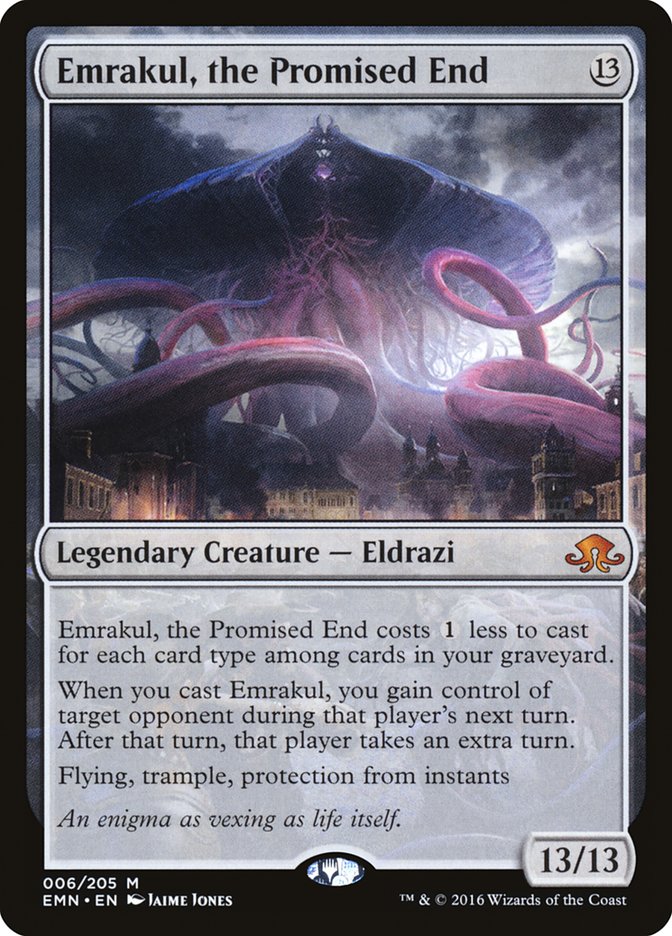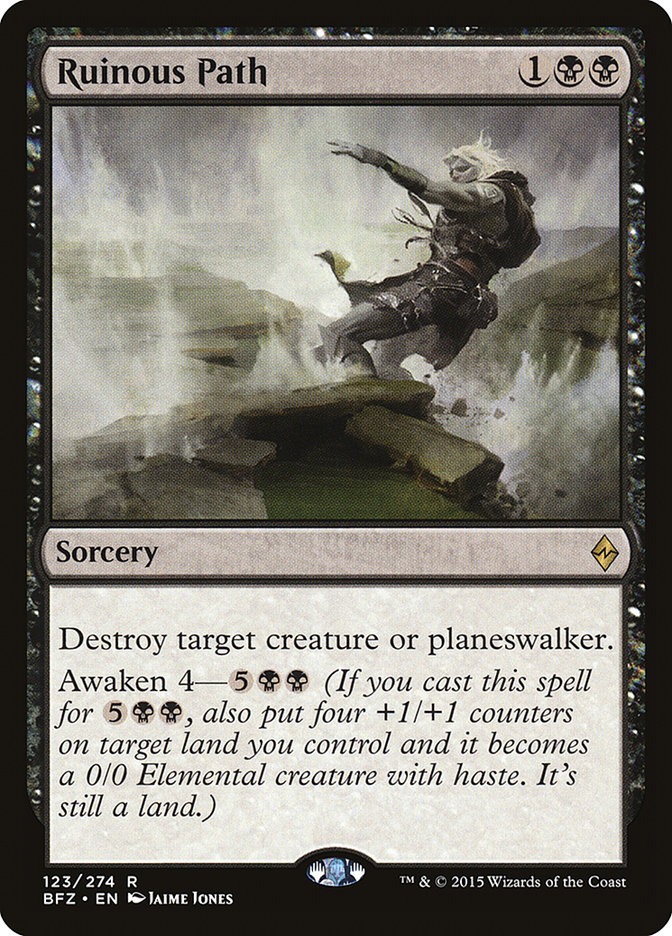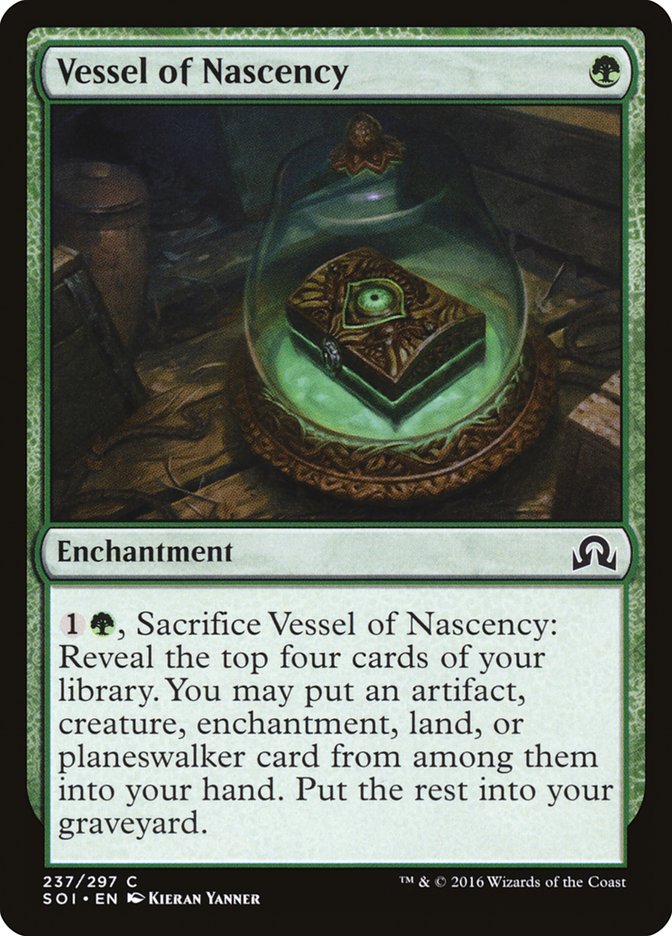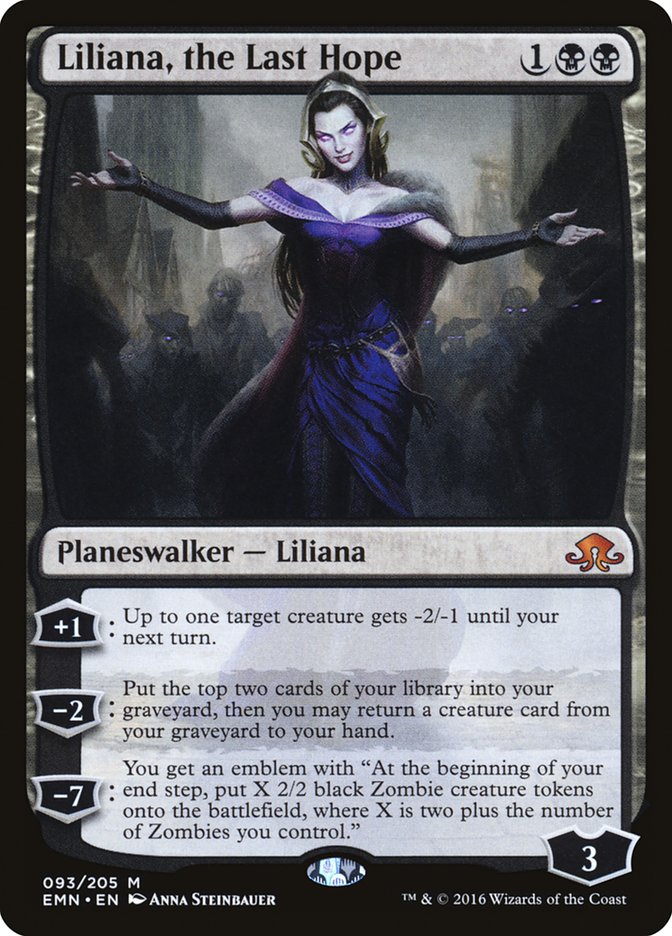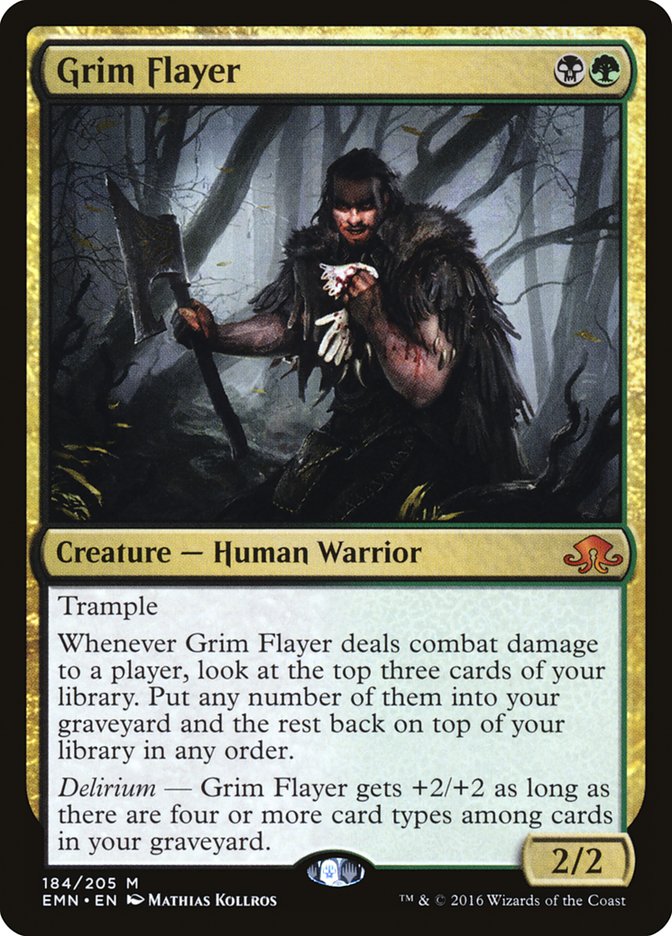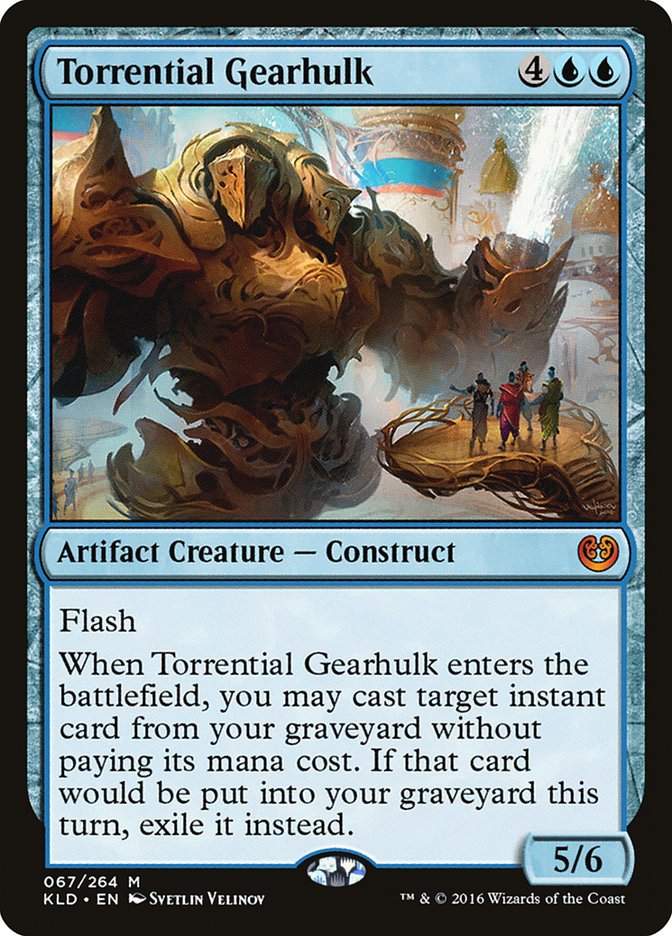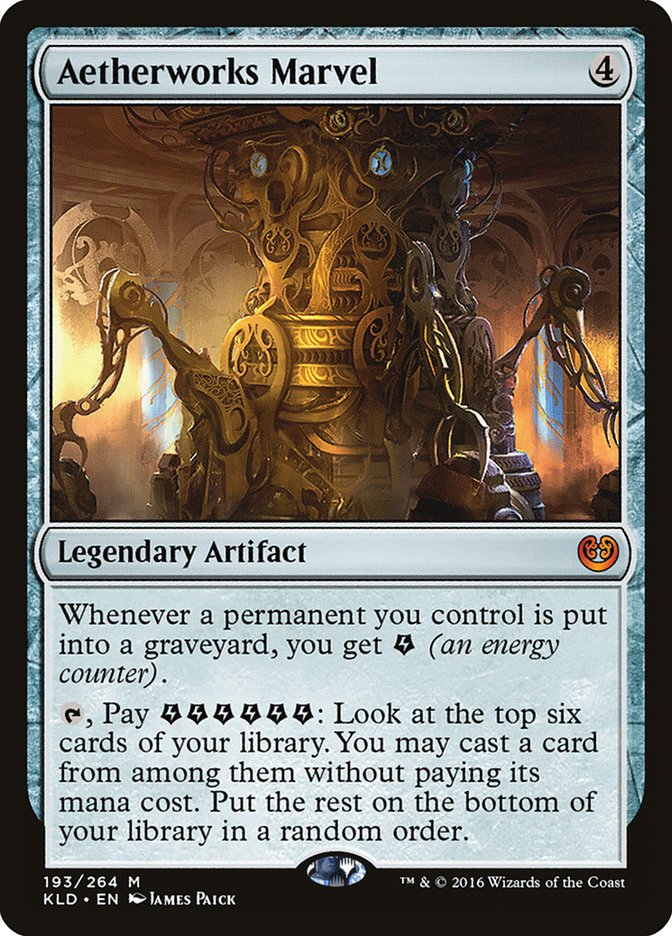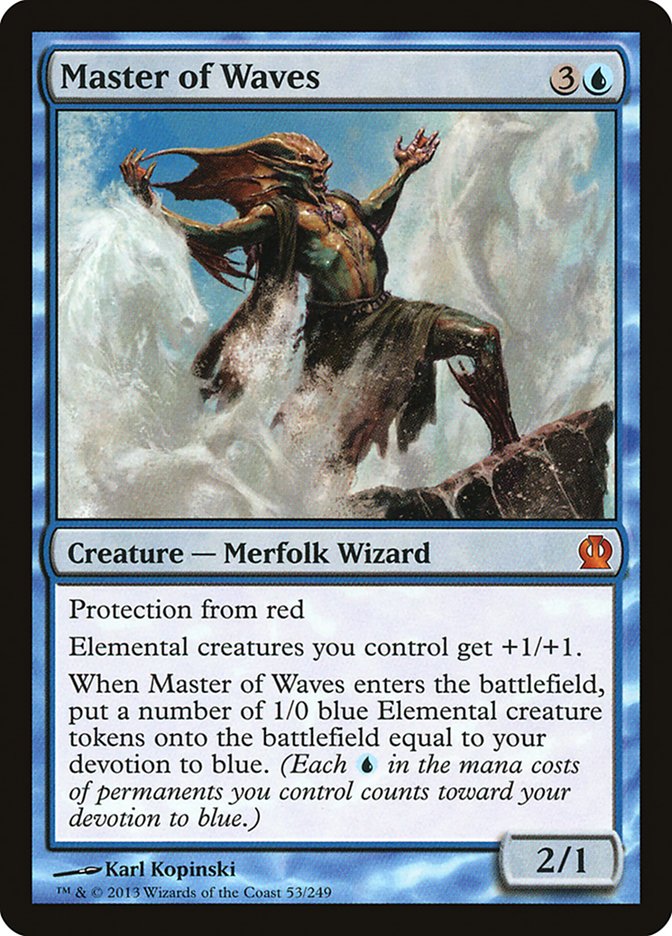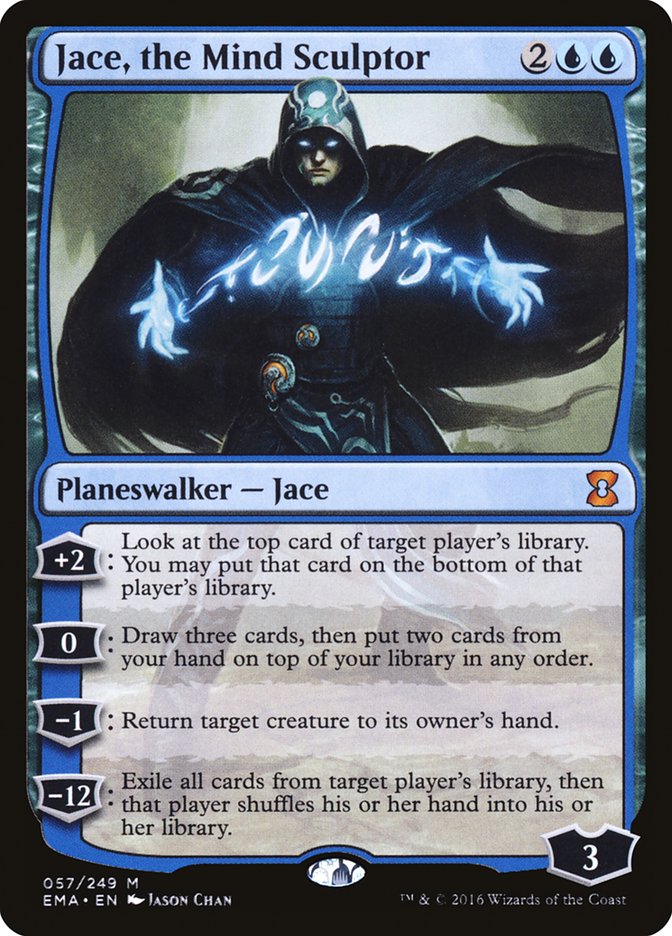One of the most hot-button topics being passed around Magic pundits is how detrimental Emrakul, the Promised End has been to Standard over the course of the last several months. Today we’re going to examine how prudent a ban on Emrakul would be and if it is, in fact, inevitable.
At its core, the argument against Emrakul seems to be centered on the finality of deploying her: that once she enters the battlefield, the density of games won skyrockets due to her “Mindslaver” cast trigger. There are few things that are less fun than not being in control of your own turn, and even fewer in knowing that unless you topdeck an answer immediately, you will almost certainly lose.
The Eldritch Moon mythic has stirred the pot of controversy during December, but is she something we should truly consider banning? Today I want to examine several reasons why she should be removed from the Standard environment, but in order to maintain a proper perspective, I’m going to discuss why she shouldn’t. In the end, hopefully we’ll all have a more defined picture of what a format without Emrakul, the Promised End looks like, and if she’s either the problem or just a symptom of other things.
Case For: Emrakul Is Almost Always Game Over.*
You’d be hard-pressed to see a game of Magic: The Gathering last long after an Emrakul is successfully cast. For as little as six mana (or sometimes free), which isn’t extremely difficult given the nature of the decks that employ her, Emrakul will come down between turns 4 and 7. Are decks out there adequately capable of dealing with a 13/13 flying trample creature that isn’t targetable with instants? The short answer is “hell no,” whereas the long answer would be “oh hell no.”
The two-turn clock of a resolved Emrakul is slightly overshadowed by how extreme a condition must be met in order to remove her from the battlefield. With your next turn being controlled, at worst Emrakul will allow you to kill their best creature in combat, as there is very little out there that successfully trades with her. At best, she will wreak havoc on your opponent’s hand, casually three- or four-for-one’ing them and leaving their battlefield and hand in ruins. Their extra turn is immaterial most of the time, as they have no creatures that can stand up to Emrakul or any spells that can stop her once she’s on the battlefield.
In terms of interactive Magic, one must first define what “interactive” truly means. With Emrakul, it almost always devolves into a game of “How badly can I destroy your battlefield state?” Experienced players usually find the rate of casting her to be vastly under her actual impact, which equates to winning on the spot.
Case Against: The “*” You See Above
The first time a player cast Emrakul, the Promised End against me, they saw that I had a Gideon, Ally of Zendikar in my hand. I also had one on the battlefield. The player proceeded to minus my Gideon to give me an emblem, cast the other one and minus it as well, and then ran one of my creatures into Emrakul… which was all they had on the battlefield.
Why was this bad for them?
Because I untapped and attacked them with the rest of my creatures, killing them.
Emrakul is a skill-testing card that requires the pilot utilizing her to understand what must be done to best win a game after she is cast, and this isn’t a talent I’ve seen a lot of players use to its fullest potential. This isn’t to say my opponent played poorly; a better play would be just casting one of the Gideons to legend-rule one of them, minusing the other, and eating one of my creatures. The double emblem, which on the surface looks like killing two Gideons for practically free, gave me enough damage to kill them on the spot.
Aside from not playing Emrakul correctly, the player using her cannot control the top of your deck. B/G Delirium decks packing Ruinous Path or Ob Nixilis Reignited may just draw either card, kill the Eldrazi, and move on. Aetherworks decks could topdeck a Woodweaver’s Puzzleknot and Emrakul you back. Standard has a ton of powerful plays, so a single Emrakul may not end the game on the spot.
Case For: Emrakul Is Too Easy to Cast
I mentioned early that an Emrakul can be cast for six mana, which is true. In a dedicated Delirium deck, Vessel of Nascency can be a jump from zero to four or five types instantly. A minus from Liliana, the Last Hope can fill your graveyard, as can connecting Grim Flayers.
The most glaring strike comes in the form of Aetherworks Marvel. As someone who has done a lot of activating Marvel, I can honestly tell you it immediately becomes hopeless for the opponent who has to deal with Emrakul on your turn 4. Woodweaver’s Puzzleknot is the equivalent of double Dark Ritual for energy, which makes accruing it entirely too easy. It’s not the offender, of course, as the deck is revolving around powering out fast Eldrazis with Ulamog, the Ceaseless Hunger making appearances alongside his sister. Each creates mini-games where your opponent is faced with how to best deal with these game-ending threats, with an overarching theme of how to also stop you from continuously activating Aetherworks.
Is this indicative of bad design?
Yes and no.
We saw at Pro Tour Kaladesh that it is possible to shut down Marvel decks with relative ease in the form of Torrential Gearhulk control, regardless of flavor. The fact that B/G Delirium naturally preys on control is what has kept it from making an appearance on a larger scale is troubling, because it makes up such a large portion of the metagame, thus making control variants a potential liability even if they can mutate to be better against their midrange foe.
In the current climate of Standard, it is clear that Emrakul can be searched, powered out, or naturally cast consistently and with game-ending consequences.
Case Against: Aether Revolt May Fill the Needed Gaps
The murmurs of banning Emrakul have all began and gained traction before Aether Revolt even started to reveal itself to the public. In the coming weeks it will become far more apparent if any action needs to be taken. Currently, Standard has failed its players by not providing any reactive or proactive answers to graveyards. Rest in Peace, Memory’s Journey, Ground Seal, and more were tools once used to keep graveyard-based strategies held down. They didn’t kill them, but they certainly made it more difficult for them to function.
We live in an environment where Emrakul as well as her Delirium-based Spider friend, Ishkanah, Grafwidow, essentially run free to do the most degenerate and oppressive things possible without consequence. Minusing your Liliana, cracking your Vessel, Grappling with the Past, or any other enabler gives you free rein to fire off the most ridiculous spells Standard has to offer. They work in concert together and very few decks are able to combat them regularly.
This is a fear that Wizards of the Coast is almost guaranteed to be paying attention to, and I would be shocked if they didn’t provide, on some level, a way to profitably interact with graveyards or at least punish players for wantonly fueling Emrakul or Ishkanah. I don’t suspect a reprint, but instead something that will be cheap and accessible for multiple players to employ. A spell like Disallow is a good start for blue mages, but ideally I believe it will be artifact-based and lean a little heavier on the B/G Delirium players out there looking to bolster their graveyard.
This doesn’t stop the issue of Aetherworks Marvel, however. Currently most artifact removal is bulky and not strong enough to warrant any form of maindeck inclusion. Reclamation Sage would make the most sense to me, as it would also crew various Vehicles while also doing double duty to destroy Aetherworks. Yet placing it in green would be a no-go, since it would simply allow B/G Delirium a cheap and efficient way to stop Marvel decks, which are their only natural competition. Perhaps color-shifting it to white would do the most good.
In any event, one of the most potent arguments for not banning Emrakul is simply shelving it entirely until we have the entirety of Aether Revolt at our disposal. If Aether Revolt doesn’t provide answers for Emrakul or other oppressive graveyard strategies, then we have a much bigger problem than simply having our turns controlled.
The Verdict
As much as I joke about cards or talk about banning them (especially in Modern), for the most part I like to live and let be. For years we lived in a Standard format where you’d lose games to a player discarding to Pack Rat, casting Sphinx’s Revelation for six, or making a half-dozen Elemental tokens with a Master of Waves that you couldn’t kill. That was a stale format.
Now we live in a world where there are approximately a dozen viable decks, but they all operate on the same axis of Emrakul, the Promised End; Ishkanah, Grafwidow; Gideon, Ally of Zendikar; and Aetherworks Marvel. Phil Jackson was wrong. It’s not a triangle. It’s a square. It’s diverse without being diverse, literally the closest to stale on the spectrum that we can get with it looking good from the outside. I have played Magic for fifteen years. This is a bad format, unfortunately.
Does it have redeeming qualities? Of course! I love intricate games that come down to play skill, and in many instances this format has those, but for each one of those games, there are the ones where you’ll lose to an Emrakul on turn 4 or 5, and that’s not healthy in the slightest. You see, the decks doing these things aren’t aggressive “all-in” builds that commit their forces to the battlefield and cross their fingers like you’d find in traditional formats. Instead, they are built for the short-, mid-, and long-game with tools to be successful at each stage. Being able to win on turns 4 and 15 through completely different yet oppressive avenues is very, very dangerous for player retention.
If Aether Revolt fails to provide a suitable answer for Emrakul, this will be the first time that I have advocated a Standard ban since Jace, the Mind Sculptor.
Simply put, Emrakul is too powerful to exist in a format that gives it little resistance by way of lack of graveyard hate and has a very cheap, widely played, and versatile card like Aetherworks Marvel to cheat it onto the battlefield. Having a card that can end the game without so much as a few turns passing is bad for Magic, bad for attendance, bad for viewership, and bad for the overall spirit of the game.
My caveat is the hope that Aether Revolt provides some much-needed reprieve, but without it, Emrakul should not be allowed to continue. My immediate fear is that WoTC will employ their laissez-faire method of waiting to see how the format plays out with a new pool of cards, but unless they are specifically designed to keep her in check, something must be done about Emrakul, and if that means a ban, then it will open up a larger amount of creative space in Standard. The decks that would take the biggest hit could still function with Ulamog, and B/G Delirium would still survive based off its engine alone.
In the end, perhaps Emrakul is too good for this world. It’s possible she may need to join the ranks of Jace and Stoneforge Mystic as banned in Standard due to sheer power level alone. The sky certainly isn’t falling on this one, but don’t be shocked if your favorite flying spaghetti monster takes a trip into the moon come next year.


